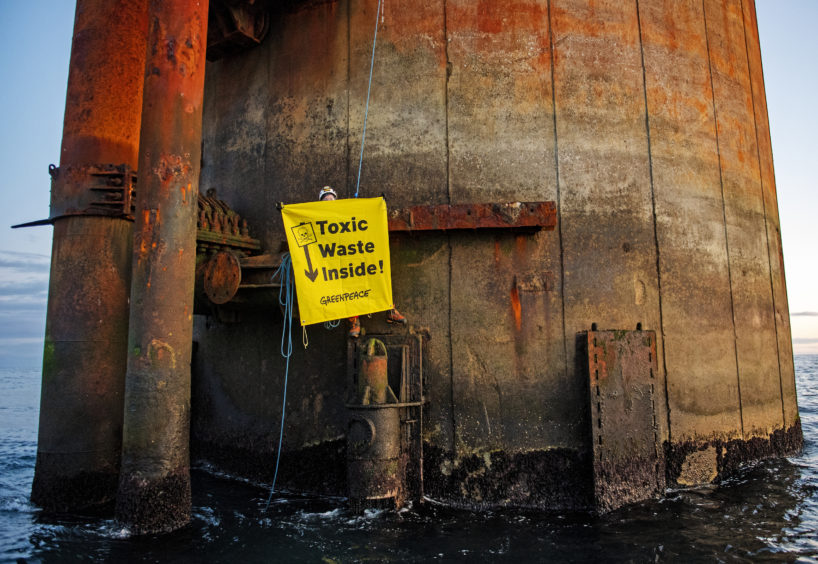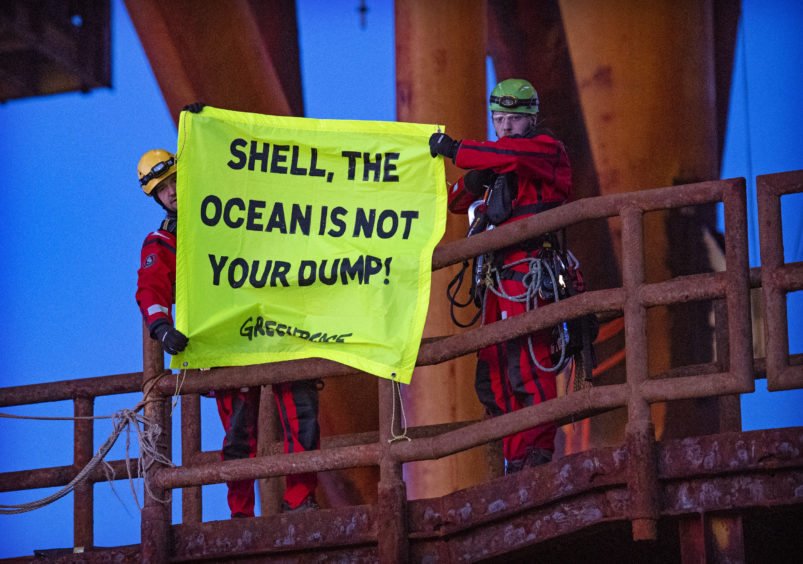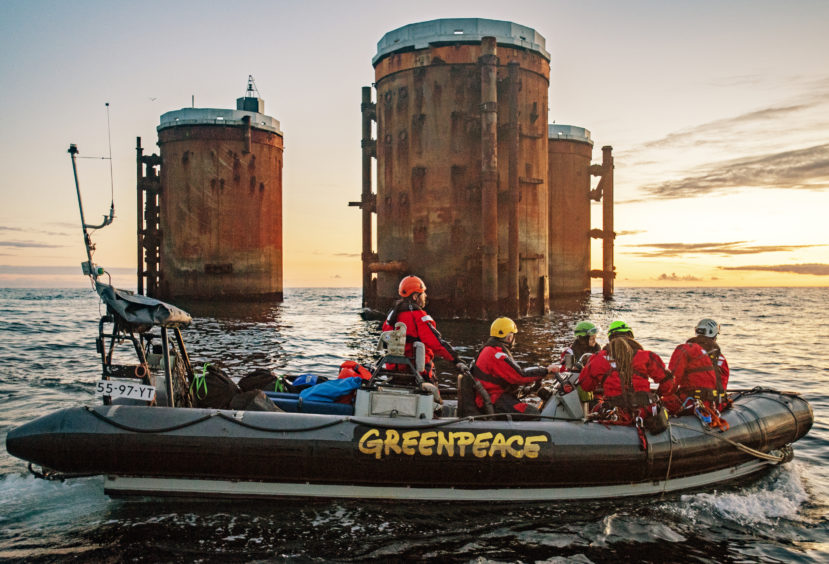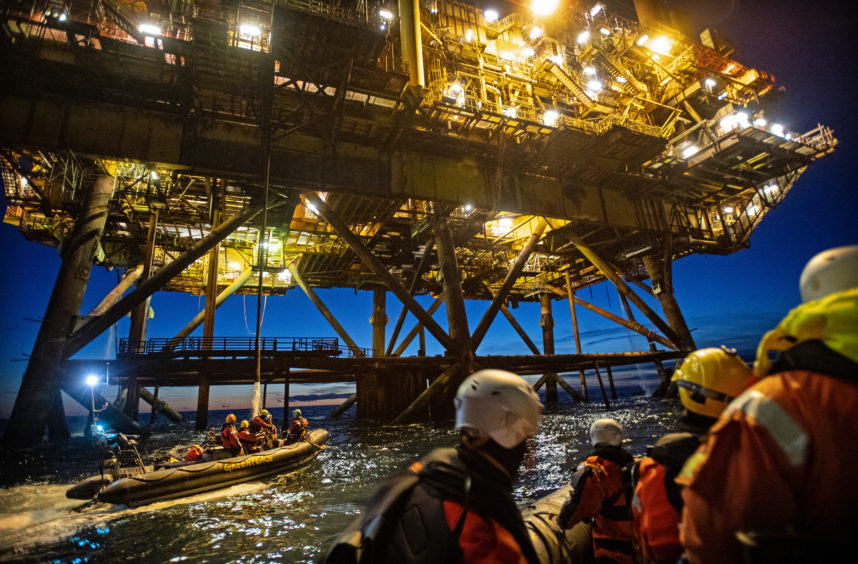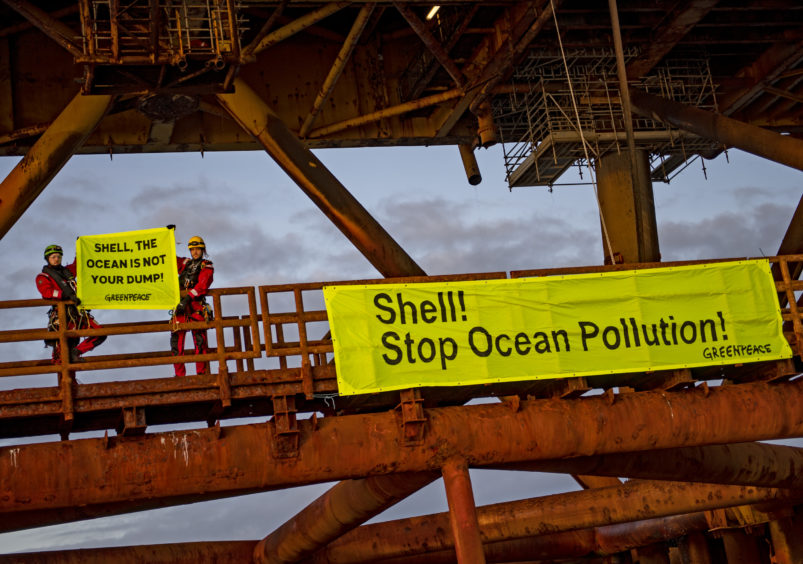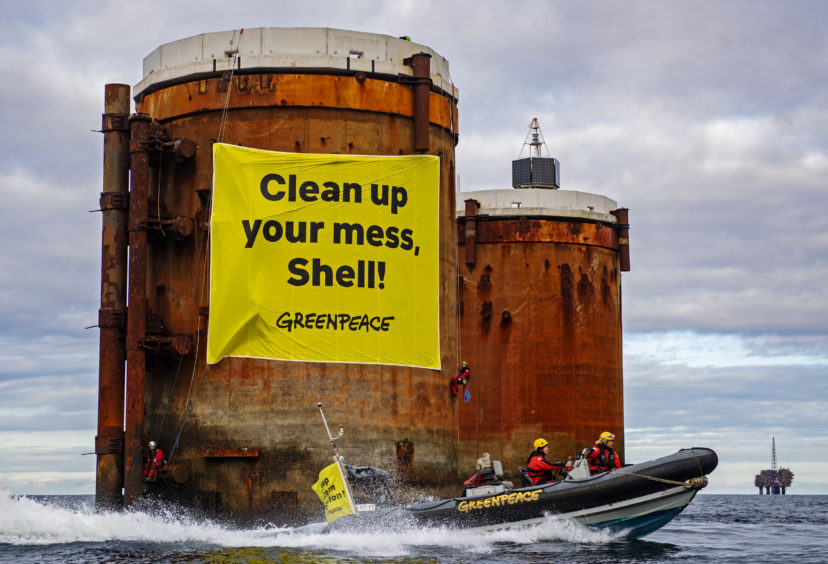
Greenpeace has announced it is carrying out “peaceful protests” at Shell’s Brent field in the UK North Sea.
Activists from the Netherlands, Germany and Denmark are protesting on two platforms in the field, around 115 miles north-east of Shetland – brandishing signs of “Shell, clean up your mess”.
It comes as a special meeting of Ospar, an agreement between 15 governments to protect Europe’s marine environment, takes place in London on Friday.
Some countries have lodged objections to Shell’s plans to leave the legs of three of the platforms – Bravo, Charlie and Delta – in the sea, with concerns around the contents of oil storage cells within them deteriorating.
ALSO READ: Environmental arguments around Shell’s Brent decom plans
Activists reached the field via the Rainbow Warrior ship owned by Greenpeace International.
Shell said four had boarded – two on the Brent Alpha and another two scaled the legs of the Brent Bravo, whose topsides were removed earlier this year.
A Shell spokesman said: “We can confirm that two protestors have boarded the Brent Alpha platform and one has climbed onto the Brent Bravo concrete legs. Their safety and that of our workers are our prime concern at this moment.”
Shell added that their plans come following more than 300 scientific and technical studies with the proposals being “safe, environmentally sound, technically achievable, and socially responsible”.
The firm also highlighted that very few fields have these concrete oil storage cells – Brent is the only one in UK waters.
However, Joris Thijssen, director of Greenpeace Netherlands, said: “Shell’s plans are outrageous and go against international agreements to protect the sea.
“The 11,000 tons of oil that is still stored in the foundation of the platforms will sooner or later end up in the sea. That is unacceptable.
“The North Sea is not a garbage dump, Shell has to clean up its mess. Greenpeace urges all OSPAR governments to protect the sea and not to give in to the pressure of a major polluter Shell.”
Police Scotland said it is “aware of the situation in the Brent oilfield and is liaising with partners to ensure that the matter is resolved safely”.
Under rules set out by Ospar, a pan-European body to protect the marine environment, installations must be removed in their entirety once they reach the end of their production cycle.
Shell has been seeking an exemption to this, arguing the safety risks associated with trying to remove the concrete structures for the Brent Bravo, Charlie and Delta platforms outweigh the “minimal environmental benefit”.
The UK Government is expected to have final legal say on the Brent decommissioning decision.
Officially the department for Business, Energy and Industrial Strategy (BEIS) has said a decision is yet to be made, despite reports they intend to back Shell’s plans.
Last week the Netherlands joined Germany in calls for complete removal of the North Sea platforms amid concerns about the contents of oil storage cells within their legs.
There are 64 huge cells within the three platforms.
Shell has long-argued that its plans are both safe and environmentally sound.
It comes after five Greenpeace protestors occupied an oil rig in the Cromarty Firth in June which was headed to BP’s Vorlich field in the North Sea.
A major police operation got underway to remove them – costing £500,000 in taxpayer funds.
All five admitted to disorderly conduct and were spared jail in lieu of unpaid work orders.

